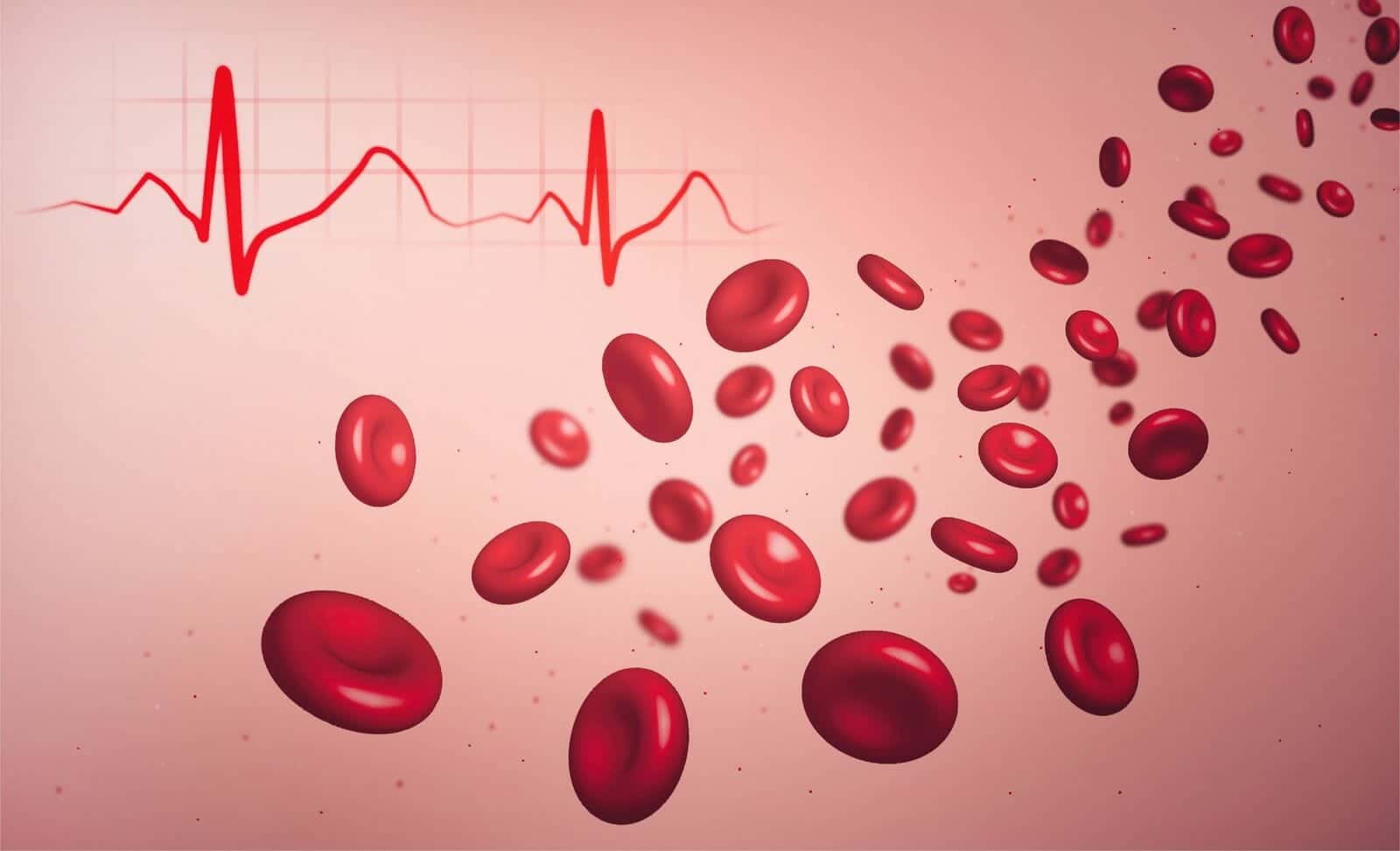
Erythrocyte sedimentation rate (ESR), a standard blood test, is crucial in diagnosing various medical conditions. Among its numerous applications, one significant utility is its ability to indicate inflammation within the body. Elevated ESR levels are often associated with multiple diseases, from infections to autoimmune disorders and malignancies.
This article looks at the diverse diseases that can lead to an increased ESR, shedding light on this valuable biomarker’s diagnostic significance and clinical implications. Understanding the conditions that cause high ESR is essential for healthcare professionals and patients, as it aids in early detection, accurate diagnosis, and timely management of underlying health issues.
What is the ESR test?
The erythrocyte sedimentation rate (ESR) test is a crucial diagnostic tool in clinical medicine. The blood test helps gauge the speed at which erythrocytes, or red blood cells, separate from a treated blood sample, preventing clot formation. The procedure involves placing a small aliquot of the patient’s blood in an upright tube, after which a laboratory specialist monitors the rate at which red blood cells settle toward the bottom of the pipe over one hour.
When an individual suffers from a medical condition characterized by inflammation or cellular damage, red blood cells tend to aggregate. They increase their density, subsequently causing them to settle more rapidly. Thus, an elevated ESR reading serves as an indicative marker, signaling to healthcare providers the presence of an active pathological process within the patient’s body, prompting further evaluation and appropriate medical intervention. [1]
Diseases that cause high ESR levels
Here are some diseases that can increase the ESR levels.
- Anemia
Changes in red blood cell properties in cases of anemia can lead to elevated ESR levels. [2]
- Arteritis
Inflammatory conditions affecting arteries, like temporal arteritis, can increase ESR. [2]
- Infections
Infections, including bone and joint infections, often trigger an inflammatory response that raises ESR levels. [2]
- Kidney disease
Kidney disease can lead to elevated ESR due to inflammation and tissue damage. [2]
- Low serum albumin
Insufficient serum albumin levels, often seen in conditions like malnutrition or liver disease, can contribute to higher ESR values. [2]
- Systemic lupus erythematosus (SLE)
This autoimmune disease can cause inflammation, leading to an elevated ESR. [2]
- Lymphoma
Both lymphoplasmacytic lymphoma and other forms of lymphoma can increase ESR levels due to their impact on the immune system. [2]
- Multiple myeloma
This cancer of plasma cells can lead to elevated ESR levels. [2]
- Polymyalgia rheumatica
A condition primarily affecting the muscles and joints, polymyalgia rheumatica is often associated with high ESR values. [2]
- Red blood cell abnormalities
Conditions that affect the shape or function of red blood cells, like sickle cell disease, can lead to increased ESR. [2]
- Rheumatoid arthritis
An autoimmune disorder like rheumatoid arthritis can cause inflammation and elevate ESR levels. [2]
- Systemic vasculitis
Inflammatory disorders that affect blood vessels can result in high ESR readings. [2]
- Thyroid disease
Some thyroid disorders, particularly inflammation, can be associated with increased ESR levels. [2]
Ayurvedic interventions to reduce ESR levels
Emerging research has provided insights into Ayurvedic interventions to mitigate elevated ESR levels, particularly in treating rheumatoid arthritis. A study has explored the potential of a combination treatment involving ashwagandha powder and sidh makardhwaj, revealing promising results in reducing ESR levels.
These findings suggest Ayurvedic approaches hold promise in managing inflammatory conditions, like rheumatoid arthritis, by addressing the underlying inflammation indicated by elevated ESR. However, it is crucial to acknowledge certain limitations within this study, including a relatively small sample size, a short duration of observation, the absence of randomization, and the lack of a control group.
Consequently, further research with more diverse cohorts must validate and build upon these initial findings. It will ensure a comprehensive understanding of the therapeutic potential of Ayurvedic interventions for ESR reduction. [3]
FAQs
1. Should I worry if my ESR is high?
It’s important to avoid jumping to conclusions solely based on a high erythrocyte sedimentation rate (ESR) result. An elevated ESR is a non-specific marker of inflammation or underlying medical conditions, and its significance depends on your overall health and clinical context. While it can relate to various diseases, including infections and autoimmune disorders, a high ESR alone does not provide a definitive diagnosis. It is suitable to consult a healthcare professional who can perform a comprehensive evaluation to idnetify the underlying cause and appropriate course of action.
2. What causes high ESR levels for no reason?
Sometimes, ESR levels may appear elevated without an apparent underlying cause. It can occur due to age, gender, pregnancy, or genetic variants. It’s essential to remember that a high ESR, even without apparent symptoms or a known cause, should not be ignored. Further investigation by a healthcare provider may be necessary to rule out any underlying conditions or monitor the situation over time.
3. When ESR is high, what is the treatment?
Treatment for an elevated ESR depends entirely on the underlying cause. ESR is a marker of inflammation, not a specific disease. The treatment plan should address the condition responsible for the increased ESR. It may involve antibiotics for infections, anti-inflammatory medications for autoimmune disorders, or Ayurvedic therapies. The most crucial step is to consult a healthcare professional who can diagnose the underlying condition accurately and recommend appropriate treatment options.
4. What cancers cause high ESR?
Several types of cancer can potentially cause ESR. These cancers include colorectal cancer, renal cell cancer, head and neck cancer, soft tissue sarcoma, breast cancer, glioma cancer, and prostate cancer. However, it’s crucial to understand that a high ESR is not specific to any particular cancer and can also indicate various other medical conditions, including infections and certain inflammatory disorders. [4]
Conclusion
ESR serves as a valuable biomarker in clinical medicine, aiding in identifying underlying health conditions, particularly those characterized by inflammation. As we have explored the diverse range of diseases and factors that can contribute to elevated ESR levels, it is essential to underscore the non-specific nature of this marker.
A high ESR, while indicative of an underlying problem, should not cause undue alarm. Instead, it should prompt further investigation by healthcare professionals to diagnose and address the root cause. A comprehensive medical evaluation and regular follow-ups to monitor ESR levels to manage underlying health concerns are crucial.
Disclaimer
The information provided here does not intend to replace professional advice or treatment.
References
- Erythrocyte Sedimentation Rate
- Erythrocyte Sedimentation Rate. 23 April 2023
- Efficacy & safety evaluation of Ayurvedic treatment (Ashwagandha powder & Sidh Makardhwaj) in rheumatoid arthritis patients: a pilot prospective study. January 2015
- Elevated erythrocyte sedimentation rate is associated with metastatic disease and worse survival in patients with cutaneous malignant melanoma. 4 October 2017

















